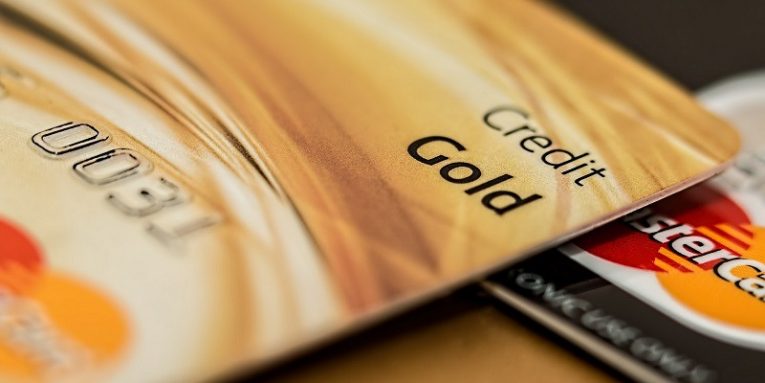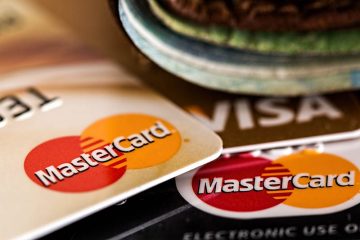How to Prevent Credit Card Fraud in 2019

Even though credit card companies introduced chip cards in 2015, which made a huge difference in decreasing fraud cases when a physical card is being duplicated (the number of incidents dropped 46 percent in the United States alone), since then, hackers discovered ways to commit such fraud online. The truth is there are a lot of strategies and methods to obtain credit card data that may allow criminals to shop at the victim's expense, apply for credit, and so on. Naturally, if you do not want to be among victims of credit card fraud, you should know about the precautions you can take to protect yourself. Also, to avoid being scammed, it is crucial to understand how these crimes happen, which is why we are presenting the different methods cybercriminals use today to attempt credit card fraud as they will most likely use the same ones in 2019 too. Thus, if you came here to learn how to prevent credit card fraud, we encourage you to read the rest of our blog post.
Table of Contents
How credit card fraud happens
Obtaining credit card data from garbage
It might sound surprising, but some criminals still go through garbage hoping to find various sensitive data. In this case, they may look for credit card statements that would allow learning details of the victim's credit card. Therefore, before throwing such documents to the garbage bin, you should make sure no one will be able to collect any information from them. To do this, you could shred or tear up the papers containing sensitive information about your credit card.
Stealing unsigned credit cards
As you know credit or debit cards are invalid unless they are signed. Of course, not every cashier checks whether it is signed or not, and today most customers insert the card themselves when paying, which makes it even harder to notice the card is not validated. Unfortunately, anyone who may steal the card could use it unsigned as well or put their own signature if the cashier sees the blank space on the card. Thus, for safety precautions, we would recommend against putting off this simple task. Signing the card takes only a moment, and you should always do so right after receiving a new card.
Using the so-called skimmers
Skimmers are devices that can read and record credit card data. Criminals can attach such devices to ATM devices and then later come back to obtain all the collected information. Also, such a device might be used to swipe the card whenever the owner does not see it; for example, it could be a waitress with malicious intentions at the restaurant or a bartender at the local bar. In others words, the person trying to steal your credit card information could be anyone, so it is best never to let your guard down.
Employing phishing scams to attack credit card users online
A phishing scam is a technique used to obtain the victim's sensitive information. To be more precise, those who fall for the fraud give out various information without even realizing they are providing it to scammers. This method can be used by calling, messaging, emailing, or using other means of communication. For example, the criminals could call the victim and offer him a great deal on something he might be interested in. To make it look more convincing, the scammer could claim he represents a well-known company. As for online hackers, they could send emails stating there is something wrong with your banking account and asking you to log into it right away. However, the link in the message might redirect you to a fake banking web page, and if you submit your PINs and passwords, all of this sensitive information could be recorded.
Other online credit card fraud methods
The first two mentioned methods might still be used among criminals, but it is much easier now to commit credit card fraud through phishing scams or online without needing to have the physical card. Nowadays, cybercriminals seeking to steal user's credit card data can use various malicious applications combined with keyloggers or other software that allows collecting user's keystrokes. The worst part is that malware can record sensitive data without the victim noticing anything. The installers of such malicious programs could be bundled with pirated software or might come with spam emails, and so on. Also, the attackers can misuse vulnerable web pages as they can insert malicious code into them. Using that, they might be able to collect credit card details, passcodes, and other data alike from the infected website's visitors.
How to prevent credit card fraud?
As criminals discover new methods and strategies every day, it is probably impossible to prevent such attacks completely. Nonetheless, there are things every one of us can do to make the attackers' chances of succeeding in credit card fraud close to impossible. First of all, we would advise protecting your physical credit card by not letting it out of your sight to avoid having your credit card being stolen or its information being recorded while using a skimmer.
Next, we would recommend setting up alerts that could be sent to your mobile phone if the banking institution notices any suspicious activity with your credit card. If the card provider cannot offer such services, you should monitor your account online from time to time so that you could identify fraudulent activities faster. Just keep in mind that it is best not to check your account on public computers or while being connected to public Wi-Fi hotspots. Lastly, it might be dangerous to submit your credit card details on unknown e-shops, so cybersecurity specialists recommend choosing reputable merchants and web pages.
What extra precautions can you take to avoid credit card fraud
As we explained earlier, some hackers may use keyloggers to record the sensitive information the user types. Thus, one of the ways to protect yourself from experiencing credit card fraud is to make sure you have to type your credit card details as rarely as possible. To be more precise, what we suggest is saving credit card information on a password manager application. In such a case, instead of typing it yourself and providing an opportunity for someone to obtain it by recording your keystrokes, you would allow the software to fill the needed data automatically. For example, Cyclonis Password Manager allows saving credit card, ID card, driver's license, and other details you want to fill automatically. Additionally, you can use the tool to generate strong passwords for your banking accounts that you could also store on the application's encrypted vault. Keep in mind that strong passwords can significantly increase the security of your online banking accounts.
To conclude, it looks like there are numerous ways to commit credit card fraud for every situation, so it is up to us to determine what our weaknesses are and how criminals could scam us. At the same time, we have to be prepared for anything. As they say, some things happen when you least expect them. Not to mention, with rapidly growing technologies and opportunities, cybercriminals become more and more creative, so we can only imagine what new credit card fraud strategies they will think of the next year. If you do not believe you did a great job protecting your banking information this year, we encourage you to use our provided tips and ensure your financial security in 2019.









As from my view most of credit card fraud occurs due to skimmers which takes user private information and steals their passwords which are more than enough to do fraud and to prevent it you need to check whether atm is tempered or not and also you need to hide your pin while using it in atm machine.